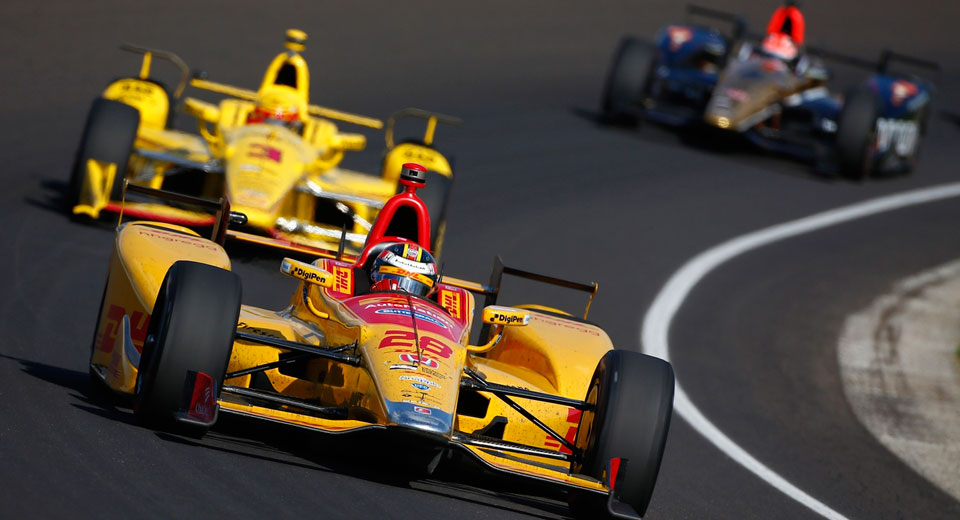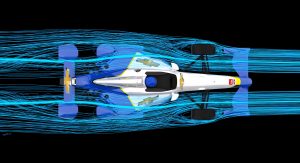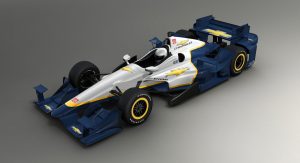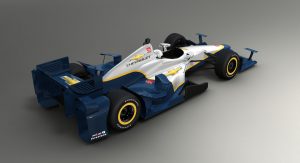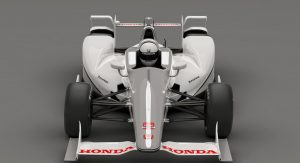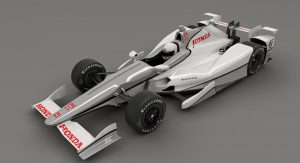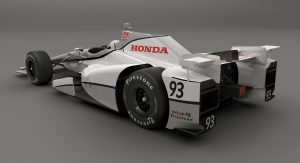Some racing series run on spec chassis. Others mandate that each manufacturer design its own. The IndyCar Series has, for the past couple of seasons, treaded the line between the two, but that’s all about to change.
The open-wheel racing series has frozen development of manufacturer aerodynamic packages starting next season. Teams running both Chevrolet and Honda engines will be allowed to run their current aero kits in 2017, but for 2018, the series plans to introduce one standard aero kit for all teams to run.
That may seem like a setback from the current arrangement, whereby each engine supplier also develops its own aero kit. But the announcement comes with an added bonus that promises to open up the field to further competition. Series organizers have revealed that discussions are underway “to add additional engine manufacturers,” although they have not indicated just which automakers might sign on in the near future. In the past couple of decades, Honda, Toyota, Nissan, Ford and General Motors have all supplied engines to the top level of American open-wheel racing.
“Today’s announcement follows an extended dialogue with Chevrolet, Honda, our teams and stakeholders – this decision focused on what is best for the future of the Verizon IndyCar Series,” said Jay Frye, IndyCar’s president of competition and operations. “This is an integral component to IndyCar’s long-term plan to continue to produce the highest quality of on-track competition while also positioning ourselves to add additional engine manufacturers.”
The series introduced the current Dallara chassis in 2012, and in invited its engine suppliers to develop their own aero kits. In addition to their own engines, Chevy and Honda each introduced two aerodynamic packages – one for speedways and one for road courses and street circuits – which their customer teams began using last season.



